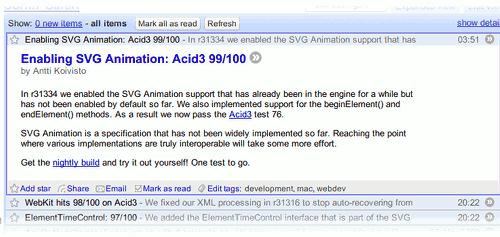I'm sure not too many within the Facebook userbase share my disdain for closed, proprietary networks yet it is not surprising that a significant number of erstwhile facebook fanatics are getting tired of the same old pointless application craze that more or less defined the latter part of 2007 for the network. On the other hand, with OpenSocial having not made any substantial steps towards a concrete presence on the internet and Yahoo's efforts having completely failed in terms of public adoption and awareness, Facebook remains the one, more or less universal social networking platform and by and large the one with the vast majority of third party applications and meaningful population profiles. I have written about my personal use of the network before: to me it's merely a universal 'phonebook' where I can find old schoolmates, long lost friends from university or other activities and friends of friends that I never got the chance to get to know well enough, but that were somewhat interesting to merit a basic level of communication. I don't use any of its facilities, not even the basic stuff like messaging (what's the point? email is much better). It is, in my eyes, merely a directory of people, not a platform for communication. Yet others have used it in considerably different ways: from meeting new people, to 'wasting' time using pointless applications, to showcasing their photographs or communicating. The University of Bath has a short survey regarding the use of Facebook. The survey is available in several languages and can be found
here. It will probably take less than 5 minutes of your time. Τhe results of this survey are going to be published online after the survey and accompanying analysis are completed.

 These past few days there's been a flurry of WebKit posts over at Surfin' Safari about its ACID3 performance. I guess when dealing with bugs, and given the fact that Microsoft typically needs around 5 years before simple CSS1 bugs are fixed (as an aside the first and only version of Internet Explorer to date that
These past few days there's been a flurry of WebKit posts over at Surfin' Safari about its ACID3 performance. I guess when dealing with bugs, and given the fact that Microsoft typically needs around 5 years before simple CSS1 bugs are fixed (as an aside the first and only version of Internet Explorer to date that